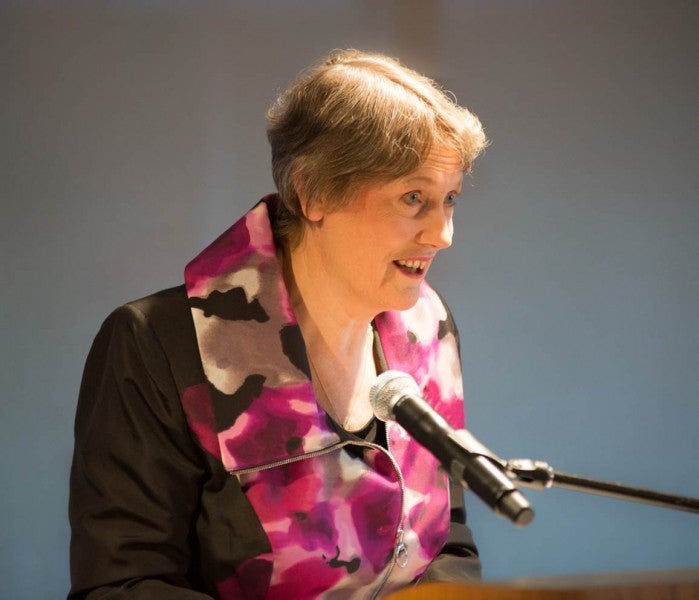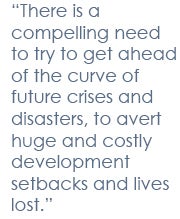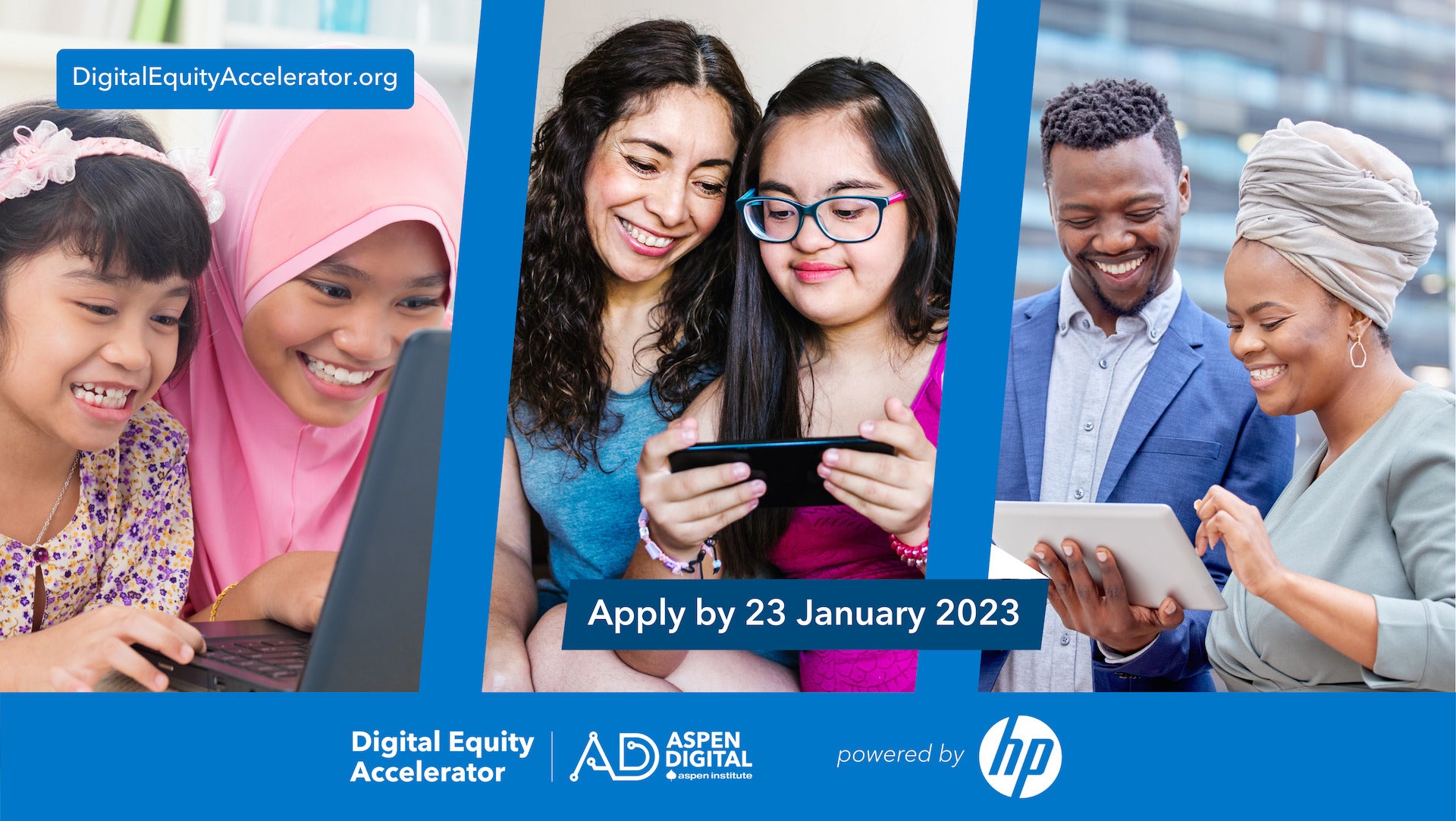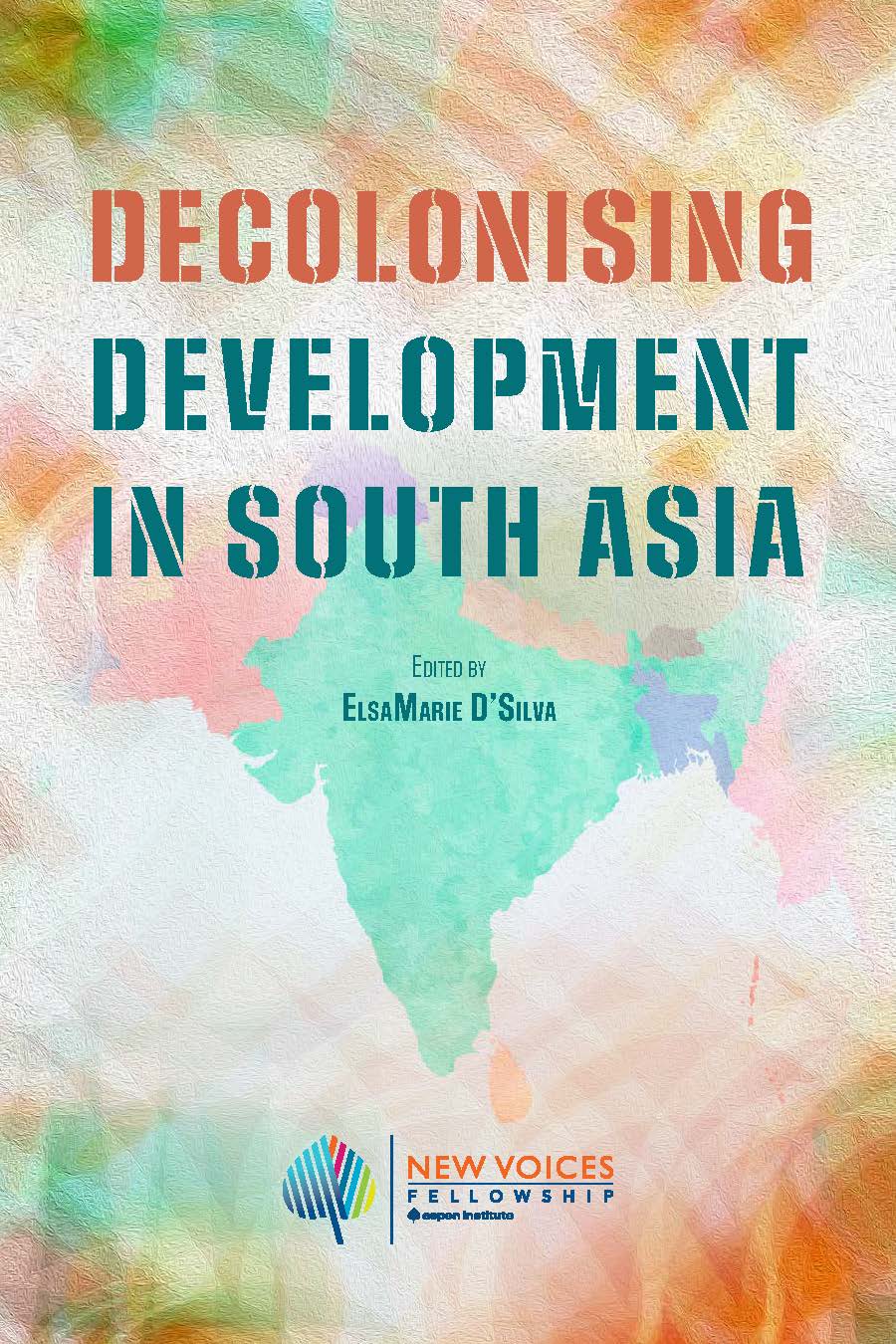
United Nations Development Program Administrator Helen Clark speaking at the Aspen Institute.
The United Nations spent an unprecedented sum of more than $22 billion on humanitarian relief in 2013. With global issues becoming increasingly complex, transformational change for countries plagued by political strife or natural disaster can only be achieved with a long-term view for global development. That was the overarching theme of the Aspen Institute Madeleine K. Albright Global Development Lecture “Making Sense of the Word We Live In: The Development Contribution” delivered by Helen Clark, United Nations Development Program Administrator (UNDP) and former Prime Minister of New Zealand (read her full remarks here).
“The issues our world is grappling with are complex — but it is vital for those actually engaged in trying to make a difference for the better to move beyond analysis to the practical steps which might help,” Clark said. “That requires one to take a long-term view — as the old adage coined in medieval France says, ‘Rome was not built in a day.’”
This year’s annual lecture, named after Institute Trustee and former US Secretary of State Madeleine Albright for her legacy of global diplomacy — honored Clark and Albright, two of the world’s most accomplished female leaders.
Clark began her speech with accolades for Albright, calling her “a trailblazer for women who has excelled at the highest level of public service [and] a personal heroine of mine.” Albright called Clark a “remarkable political figure and leader,” citing her many firsts as a woman. In addition to becoming New Zealand’s first female deputy prime minister, and the first female prime minister who was also the first to serve three consecutive terms, she was the first female in her country to lead a labor party. Of Clark’s role as the Administrator of UNDP, Albright said, “She chose to assume a post that is arguably more difficult that running a country.”

In her lecture, Clark sited numerous ongoing global crises that will require UNDP to implement non-military development efforts in a growing list of countries: the political conflicts in Gaza, eastern Ukraine, Syria, Iraq, Libya; the missing Nigerian schoolgirls, terrorist attacks in Kenya, food shortages in Somalia, and natural disasters like the record-breaking typhoon that struck the Philippines last year. “It’s hard to remember a time when more crises were jostling for space in the headline news, or when the world’s leading diplomats were engaged in shuttle diplomacy on so many issues simultaneously,” Clark said. And the price tag for the UN coordinated appeals for humanitarian crises keeps rising, with $16.4 billion already spent so far in 2014. “Even that sum pales in insignificance when one looks at the human and financial costs to countries affected by these crises,” Clark said.
Clark’s approach to address the myriad global issues is prevention and preparedness. For every dollar spent in disaster preparedness and mitigation, $7 will be saved when disaster strikes, according to UNDP.
“Could more be done to anticipate, prevent, or mitigate these traumatic events? The short answer is yes, it could,” Clark said. “There is a compelling need to try to get ahead of the curve of future crises and disasters, to avert huge and costly development setbacks and lives lost.”
“Putting in early warning systems, rapid response capacity, resilient infrastructure and systems… are highly effective cost interventions,” Clark said.
The long-term view is most vital for countries mired in political strife and violence, where fragility poses bigger challenges and development efforts can often be construed as controversial. Without implementing the necessary political, economical, and cohesive infrastructure and support, independence can be a short-lived victory for states that often return to conflict within a short period of time.
“Development is ultimately a political process which requires leadership, vision, tolerance, and the inclusion [of voices] for its full benefits to be reaped and for serious setbacks to be averted,” Clark said. “Many of the key issues involved in building peaceful and cohesive societies and the rule of law are controversial. The ongoing resistance in some quarters to the full empowerment and equality of women and to sexual and reproductive health and rights is disturbing.”
The opportunity to affect long-term global development change is timely: the eight United Nations Millennium Development Goals (MDGs), which range from halving extreme poverty to halting the spread of HIV/AIDS and providing universal primary education, are due for reevaluation in 2015. From 2015-2030, the new MDGs, which will be referred to as the post-2015 agenda, will continue to galvanize action amongst government leaders, nonprofits, and the private sector. Clark believes “the post-2015 agenda is shaping up to be bolder and more transformational than the MDGs” were, but with a new focus on sustainable development. “Human development is not just about lifting people out of poverty. It is about keeping them out of poverty.”

